Six months have passed since we published our 2018 What’s Hot in Literacy Report, and the results continue to shape our conversations and the resources we provide—from conference programming to Twitter chats, and from literacy briefs to Literacy Today.
This year’s report included survey responses from more than 2,000 literacy professionals in 91 countries and territories, ranking issues in literacy in terms of how much attention they are currently receiving and how much they should be receiving.
For the six-month mark, we asked literacy researchers and leaders to reflect on the results and tell us what stood out to them. Not surprisingly, many focused on equity in literacy education—which ranked as the second most important topic in the report. Responses also centered on early literacy, digital literacy, and professional development. Read on, and be sure to share your thoughts on social media by using the hashtag #ILAWhatsHot or by emailing us at whatshot@reading.org.
 “I am very pleased to see the focus on equity in the What’s Hot report. We still have a long way to go to deliver on the promise of equity, and literacy educators are uniquely positioned to contribute in significant ways to equity efforts. To my thinking, equity must extend beyond cultural proficiency and include excellent literacy instruction such that all students realize their aspirations. After all, literacy opens the doors to all other content learning and is highly correlated with a quality life.” —Douglas Fisher, San Diego State University, ILA President of the Board
“I am very pleased to see the focus on equity in the What’s Hot report. We still have a long way to go to deliver on the promise of equity, and literacy educators are uniquely positioned to contribute in significant ways to equity efforts. To my thinking, equity must extend beyond cultural proficiency and include excellent literacy instruction such that all students realize their aspirations. After all, literacy opens the doors to all other content learning and is highly correlated with a quality life.” —Douglas Fisher, San Diego State University, ILA President of the Board
 “The people have spoken: Early literacy is fundamental in our field, and I completely agree. Developing foundational skills such as phonics, fluency, and reading comprehension is paramount. Still, some students struggle with the basics and thus it is imperative that teachers possess effective and efficient strategies for differentiating instruction. Considering our dedication, resources, and over a century of research, it is shocking that we still struggle to reach all students. In order to adequately equip teachers, researchers should continue to focus on the development of various interventions that support diverse learners with the basics of reading. There is no silver bullet, so teachers need numerous (perhaps endless) options. We want all kids to experience success so that they are free to enjoy the aesthetics of reading and writing and effectively use literacy to navigate their worlds.” —Chase Young, Sam Houston State University
“The people have spoken: Early literacy is fundamental in our field, and I completely agree. Developing foundational skills such as phonics, fluency, and reading comprehension is paramount. Still, some students struggle with the basics and thus it is imperative that teachers possess effective and efficient strategies for differentiating instruction. Considering our dedication, resources, and over a century of research, it is shocking that we still struggle to reach all students. In order to adequately equip teachers, researchers should continue to focus on the development of various interventions that support diverse learners with the basics of reading. There is no silver bullet, so teachers need numerous (perhaps endless) options. We want all kids to experience success so that they are free to enjoy the aesthetics of reading and writing and effectively use literacy to navigate their worlds.” —Chase Young, Sam Houston State University
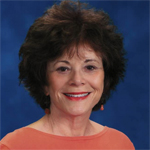 “It isn’t surprising that early literacy captured the No. 1 most important spot for the second year in a row. Respondents realize the long-lasting impact that early literacy has on all subsequent learning, emotional development, workplace success, and earning potential. The No. 2 most important spot was the need for equity in literacy education. Couple these with the latest NAEP data and it becomes obvious that specific action needs to be taken to ensure equity in early literacy learning.
“It isn’t surprising that early literacy captured the No. 1 most important spot for the second year in a row. Respondents realize the long-lasting impact that early literacy has on all subsequent learning, emotional development, workplace success, and earning potential. The No. 2 most important spot was the need for equity in literacy education. Couple these with the latest NAEP data and it becomes obvious that specific action needs to be taken to ensure equity in early literacy learning.
“A few things that could happen immediately to promote early learning equity include: identifying specific factors that are part of programs identified as effective; providing equal funding across states and districts to support early literacy programs that contain these factors; hiring well-trained veteran teachers and administrators with proven track records of success working in high-risk districts who believe all children have the potential to learn and should be provided with instructional opportunities and materials to do so; and engaging families and caregivers with information about how health, attendance, and home engagement affect and promote early literacy learning.
“I am concerned that more attention wasn’t placed on teacher preparation even though it was identified as important. I, of course, believe that without very strong teachers who are supported by their administrators, no instructional change can be possible. So I would like to see more teacher preparation programs uniting university professors and classroom teachers in partnerships where they design and coteach courses in school classrooms. This alliance will disrupt business as usual that often finds professors and teachers at odds about what instruction and learning constitutes. School and university partnerships that involve teachers, preservice teachers, and professors designing lessons and teaching collaboratively will result in new teachers having a more solid understanding of the importance of connecting with their students’ families and communities to understand how they learn, how to plan instruction, how to manage equitable environments, and how to use daily insights about each student to design his or her next day’s learning.” —Diane Lapp, San Diego State University, ILA Literacy Research Panel Chair
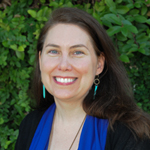 “In a globalized world, it’s important to look broadly at trends in literacy education that extend beyond national policies and boundaries. Looking for common connections across countries paves the way for shared priorities, new connections, and valuable global partnerships.
“In a globalized world, it’s important to look broadly at trends in literacy education that extend beyond national policies and boundaries. Looking for common connections across countries paves the way for shared priorities, new connections, and valuable global partnerships.
“I’m surprised that digital literacies was not identified as hotter and more important because of the importance digital interactivity plays in college and career readiness and in everyday life. Gathering and content creation are a part of our everyday lives and literacy practices, yet they do not get as much attention in our classrooms as they should. In order for students to navigate the expanded learning environments that the internet makes possible, learners need more instruction and more experience in school—especially students who have limited access at home. Digital literacies instruction directly relates to equity issues nationally and globally.
“The section that outlined themes that emerged across topics was really valuable. The five topics—Equity, Community–Literacy Connections, Excellence in Literacy Education, Personalizing Literacy Instruction, and Building 21st-Century Skills—provide a call to action for instruction, research, and policy and can be jumping-off points for discussion at the classroom, school, and university level.”—Jill Castek, University of Arizona
 “As always, I appreciate the What’s Hot in Literacy report as a way to test my own assumptions and understandings of what researchers, policymakers, and educators think are the most important issues facing literacy teaching and learning today. Without the report, it would be all-too-easy for me to falsely believe that my own research and teaching passions are shared equally across the field.
“As always, I appreciate the What’s Hot in Literacy report as a way to test my own assumptions and understandings of what researchers, policymakers, and educators think are the most important issues facing literacy teaching and learning today. Without the report, it would be all-too-easy for me to falsely believe that my own research and teaching passions are shared equally across the field.
“This year’s report confirmed some of my hunches and challenged others. For example, I was pleased to see equity in literacy education and teacher preparation among the top five most important topics this year. However, I was surprised that neither was considered a hot topic, particularly given our tumultuous past year in the United States around issues of equity, diversity, and social justice. Similarly, I was not surprised to see digital literacy as a hot topic, but I was surprised that it did not rank higher in importance (i.e., ranked 13th). Given the focus on ‘fake news’ in 2017–2018 as well as social media’s role in politics, I would have expected digital literacy to be ranked as both hot and important.
“Personally, the three topics that I believe are most critical in 2018 are disciplinary literacy, professional learning, and administrators as literacy leaders. Each of these topics was rated as very or extremely important, but not equally hot. With the Common Core State Standards still in effect in most states, and with increased pressure to prepare students for competition in a global economy, advanced literacy skills are critically important. However, to promote disciplinary literacy, we need administrators to be prepared and supported in working as literacy leaders. ILA’s Standards for the Preparation of Literacy Professionals 2017 clearly call for increased professional learning across all educator roles, with literacy leadership work being undertaken equally by teachers, specialists, coaches, and principals together.
“If we are to move forward effectively, we need to work smarter, as literacy leadership teams, to design and support ongoing literacy professional learning to address these many hot and important topics.” —Jacy Ippolito, Salem State University
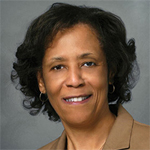 “I like that the report is representative of a diversity of opinions from the vantage points of educators from different countries who work in various capacities to teach and support the literacy development of students of multiple ages.
“I like that the report is representative of a diversity of opinions from the vantage points of educators from different countries who work in various capacities to teach and support the literacy development of students of multiple ages.
“As the lead writer for Standard 4: Diversity and Equity in the ILA Standards for the Preparation of Literacy Professionals 2017, I am pleased with the recognition of the importance of equity in literacy instruction to address the achievement gap of students across all educational levels. I am hopeful that the No. 2 ranking in importance of this topic will lead to poignant discussions and strong advocacy efforts that result in greater priority given to instituting changes in educational policies and practices to improve student achievement and promote social justice." —Doris Walker-Dalhouse, Marquette University
 “I was pleased to see the attention that both teacher preparation and professional development and learning have garnered in this year’s survey. Our teachers are our most important asset, and these are certainly topics that should be important and very hot. While resources are of course essential, if we want to create equitable contexts for literacy education, we need to consider (and continue to learn about) the types of sustainable preparation and professional learning opportunities that empower teachers to be agentive in helping all students get what they need academically, linguistically, culturally, and socially.
“I was pleased to see the attention that both teacher preparation and professional development and learning have garnered in this year’s survey. Our teachers are our most important asset, and these are certainly topics that should be important and very hot. While resources are of course essential, if we want to create equitable contexts for literacy education, we need to consider (and continue to learn about) the types of sustainable preparation and professional learning opportunities that empower teachers to be agentive in helping all students get what they need academically, linguistically, culturally, and socially.
“I’m surprised to see digital literacy falling out of favor. With the proliferation of technological advances and understandings of multimodal representations of knowledge, it seems schools are overly focused on using devices and programs for the sake of using them. With these rapid changes and the shifts toward more globalized economies, digital literacy should certainly be important, if not essential, to our advances in literacy education. We have important work to do with how these digital tools are used critically and with purpose to facilitate students’ abilities to process and produce texts, and to achieve personal, economic, and social fulfillment.” —Dana Robertson, University of Wyoming
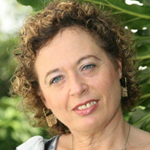 “It is gratifying to read that early literacy is both hot and important. It is interesting that educators see its importance more so than researchers. Is it receiving enough investment? Do we have enough resources to explore it within the family where children develop?
“It is gratifying to read that early literacy is both hot and important. It is interesting that educators see its importance more so than researchers. Is it receiving enough investment? Do we have enough resources to explore it within the family where children develop?
“Family involvement is important in the development of literacy. To promote this topic, there is a need for resources. It is easier to conduct lab studies or even to introduce literacy programs to kindergartens and schools. It is more difficult to involve family members in literacy interventions in a consistent manner.
“Regarding teacher preparation, the gap between its perceived importance and how much the topic is considered hot is distressing. There is not enough connection between academia and the field. I am currently involved in efforts in various frameworks to make information accessible to those in the field, but there is much more to be done in this area.” —Dorit Aram, Tel Aviv University
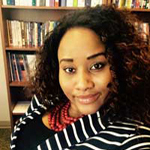 “We seem to agree that equity is important but we don’t seem to reflect this importance sufficiently in our work (i.e., equity is not on the ‘what’s hot’ list). Teachers can use insights about equity ratings to inform how they intentionally address issues of equity in literacy classrooms. Researchers can use findings about importance concerning administrators needing more literacy training to guide emerging literacy scholars’ research emphases.” —Patriann Smith, Texas Tech University
“We seem to agree that equity is important but we don’t seem to reflect this importance sufficiently in our work (i.e., equity is not on the ‘what’s hot’ list). Teachers can use insights about equity ratings to inform how they intentionally address issues of equity in literacy classrooms. Researchers can use findings about importance concerning administrators needing more literacy training to guide emerging literacy scholars’ research emphases.” —Patriann Smith, Texas Tech University
 “We know a great deal about the importance of developing young children’s oral language, vocabulary, and conceptual knowledge, as well as their ongoing benefits. However, to implement our knowledge in ways that will better ensure equity, we need to refocus our resources toward effective teacher preparation, professional learning and development, access to books and content, and other means of meeting students’ needs. The gap that exists between important and hot for these topics highlights the critical need to advocate for equitable funding across all our public schools.” —Melanie Kuhn, Purdue University
“We know a great deal about the importance of developing young children’s oral language, vocabulary, and conceptual knowledge, as well as their ongoing benefits. However, to implement our knowledge in ways that will better ensure equity, we need to refocus our resources toward effective teacher preparation, professional learning and development, access to books and content, and other means of meeting students’ needs. The gap that exists between important and hot for these topics highlights the critical need to advocate for equitable funding across all our public schools.” —Melanie Kuhn, Purdue University
 “It’s exciting to see equity issues ranked highly in both importance and what’s hot in 2018. Classroom teachers can use this information to bolster their advocacy and action toward equity and diversity in classrooms and push schoolwide initiatives promoting equity and diversity. Request funding for books with characters who have diverse backgrounds and experiences. Urge the purchase of books in native languages of EL students in your school and community. Push for professional development on having critical conversations about diversity through literacy. Teachers are on the front lines of making change in society. Keep advocating for equity!” —Autumn Dodge, University of Lynchburg
“It’s exciting to see equity issues ranked highly in both importance and what’s hot in 2018. Classroom teachers can use this information to bolster their advocacy and action toward equity and diversity in classrooms and push schoolwide initiatives promoting equity and diversity. Request funding for books with characters who have diverse backgrounds and experiences. Urge the purchase of books in native languages of EL students in your school and community. Push for professional development on having critical conversations about diversity through literacy. Teachers are on the front lines of making change in society. Keep advocating for equity!” —Autumn Dodge, University of Lynchburg
Colleen Patrice Clark is the managing editor of Literacy Today.
An abbreviated version of this article was first published in the July/August issue of Literacy Today, ILA’s member magazine.
Click here to download ILA’s 2018 What’s Hot in Literacy Report.